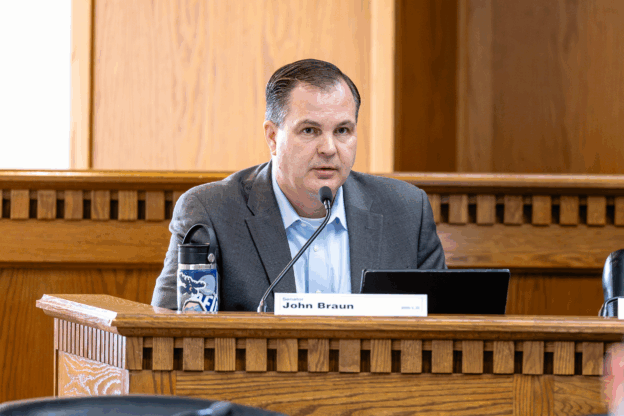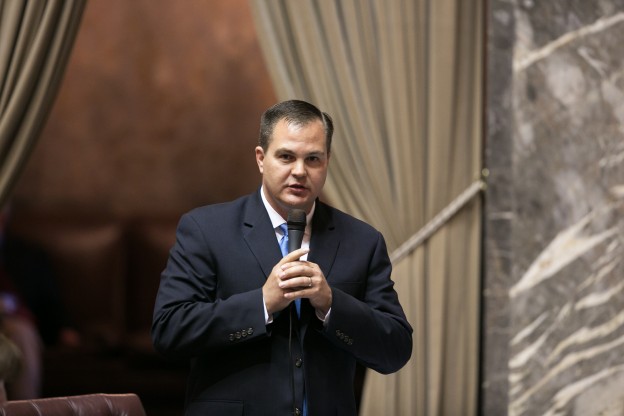Dear Friends and Neighbors,
By now, you’ve seen the stories on the news about the commercial truck driver who caused the deaths of three people while performing an illegal U-turn on a three-lane highway in Florida. The press has reported that the driver, Mr. Harjinder Singh, was issued a commercial driver’s license here in Washington.
As it turns out, Mr. Singh is in the United States illegally, but legal immigration status is required by both federal and state law to qualify for a CDL.
A post-crash assessment administered by the Federal Motor Carrier Safety Administration (FMCSA) revealed that Mr. Singh had a significant language barrier. He answered only two out of 12 questions correctly on a verbal English test and failed a road sign test, identifying only one of four signs correctly.
How then, did Washington state issue Mr. Singh a commercial driver’s license?
The simple answer is: Because DOL violated both federal and state law.
Existing Law
To legally obtain a CDL in Washington, you must:
- Be at least 18 (or 21 for interstate driving)
- Hold a valid Washington driver’s license
- Submit documentation verifying legal presence or lawful status
- Pass both knowledge and practical driving (skills) tests
- Meet medical fitness standards
Similarly, federal law also requires proof that someone is in the United States legally in order to qualify for a CDL. As I mentioned, Mr. Singh did not meet this basic requirement and should not have been issued a CDL in any state.
Both the U.S. Department of Transportation and the Washington State Department of Licensing have said they will investigate the incident. When nonpartisan committee staff asked DOL what their timeline would be for their investigation, DOL’s legislative and policy director sent an email reply that included the following statement:
“Regardless of what type of license was issued, Mr. Singh would have received a commercial driver license because he passed all of the required tests and met all requirements.”
Since he is in the United States illegally, we know this is not true. So, how did this happen?
DOL Failure
Simply put, DOL violated state and federal law by issuing the CDL to Mr. Singh.
This glaring oversight will have political ramifications for Washington. Depending on the results of the federal investigation, we could lose $10.5 million a year in federal funding.
Was the law overlooked or ignored? Is staff receiving the proper training to deny licenses to illegal immigrants? We deserve to know.
We also deserve to know how many other unqualified individuals are driving commercial trucks on our highways. Depending on what we learn through the investigations, we may need to address this during the upcoming legislative session. We should, at the very least, align our law with federal law, requiring commercial drivers to be proficient in English, so they are able to read road signage and read emergency notifications.
Democrat-perpetuated Problem
My colleague, Sen. Curtis King, R-Yakima, sponsored a bill (Senate Bill 5464) last session that would have required DOL to update its CDL/immigration status code for clarity. It also would have required the agency to make available the information on how immigration status impacts the ability to get a CDL.
Most importantly, Sen. King’s bill would have required better training for department staff on what kind of documentation is required to prove citizenship/residency.
Unfortunately, majority Democrats killed the bill. Thanks to them, Washington is a “sanctuary state,” and they argued SB 5464 would lead to the DOL reporting illegal immigrants to the federal government.
Did our “sanctuary state” status influence the process at DOL that allowed Mr. Singh to get his license? That remains to be seen. But it’s clear that the law was not followed and three people died because of it.
I’ll be watching as this develops.
If you have questions, you can email me at john.braun@leg.wa.gov.
Sincerely,
John Braun
$292 million failure shows state’s incompetence is a feature, not a fluke
Following is a news release I sent to the press this morning.
CENTRALIA — Senate Republican Leader John Braun issued the following statement today in response to the Seattle Times report that the state has suspended a $292 million IT modernization project after more than a decade of failed progress:
“Suspending this project further exposes a long-standing problem with large state contracts – the chronic mismanagement of taxpayer dollars. That the dysfunction and incompetence of demonstrated here ever got this far without results or accountability is shameful. We have a culture of apathy, excuse-making, and blurred responsibility in our state government today, and this is just one example.
“If this had happened in the private sector, someone would’ve been fired years ago. Instead, we watched the price tag skyrocket and deadlines slip while agency leaders shrugged or got bogged down in power struggles and petty squabbles. That’s not public service — it’s public negligence.”
Braun called for accountability for those responsible for overseeing, or hindering, the failed IT project and urged the development of a new oversight structure for large-scale state contracts.
“Washingtonians deserve better. We need a clear process where qualified project managers with real-world experience — not political appointees — are empowered to make decisions and stop waste before it spirals out of control. And this needs to extend beyond IT projects. This process should extend to all state agencies – including the Department of Transportation, which is constantly plagued with missed deadlines and blown budgets because no one provides serious oversight or enforces standards of performance.
“The upcoming 2026 Legislative Session provides an opportunity for the Legislature to rein in government waste and prove that we take our fiduciary responsibility to the people of Washington seriously. If the majority won’t sponsor legislation to hold those in charge more accountable, Republicans will.”

Majority’s massive expansion of sales tax is costly, chaotic and unnecessary
The following is my commentary that appeared in The Centralia Chronicle on Aug. 22.
A colleague of mine was recently told by his teen’s drivers-education school to expect a larger bill this fall because of the “crazy tax hikes signed by the governor.” In this case it’s the new law that will force even more businesses in our state to collect sales tax, starting Oct. 1.
The person who delivered the bad news was apologetic; however, this is the fault of the state’s majority Democrats. A teen-driving course that now costs $650 will soon be closer to $715 once you add the new sales tax — passed primarily to cover the multibillion-dollar pay raises for state workers approved by the previous governor.
Even though it’s estimated to cost nearly $4 billion over four years, the sales-tax hike isn’t the largest of the tax increases that will hit when October arrives. That title belongs to the jump in the business-and-occupation tax rate, which is expected to take another $5.6 billion from Washington employers over four years.
Read the full column.














